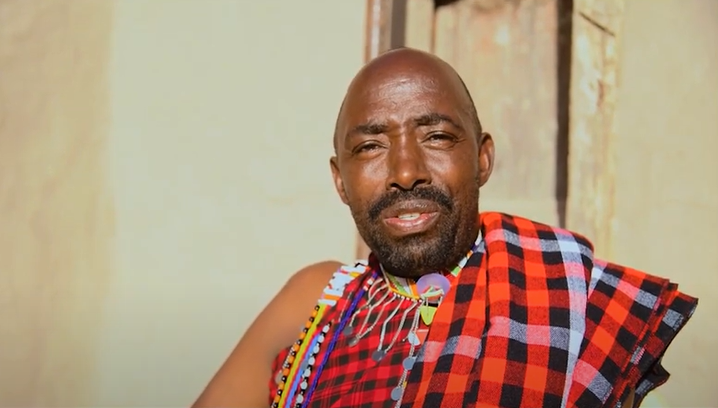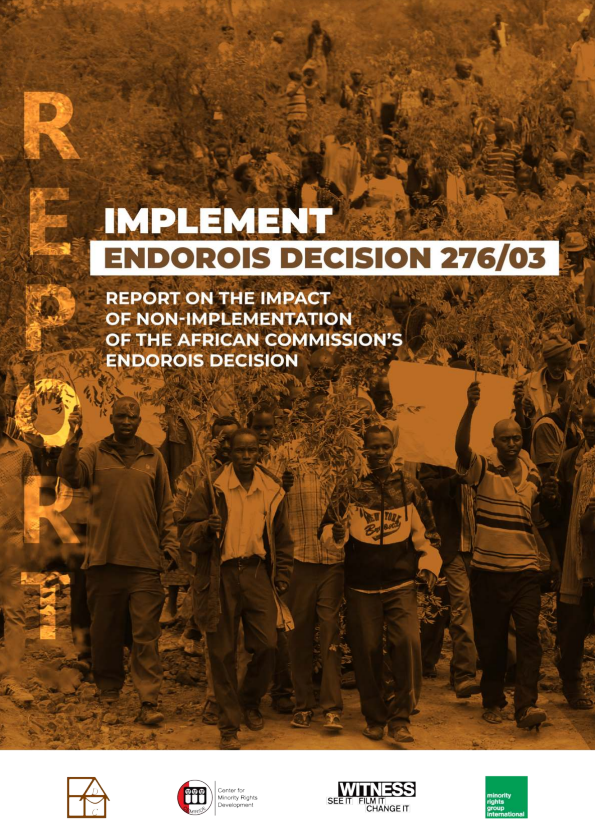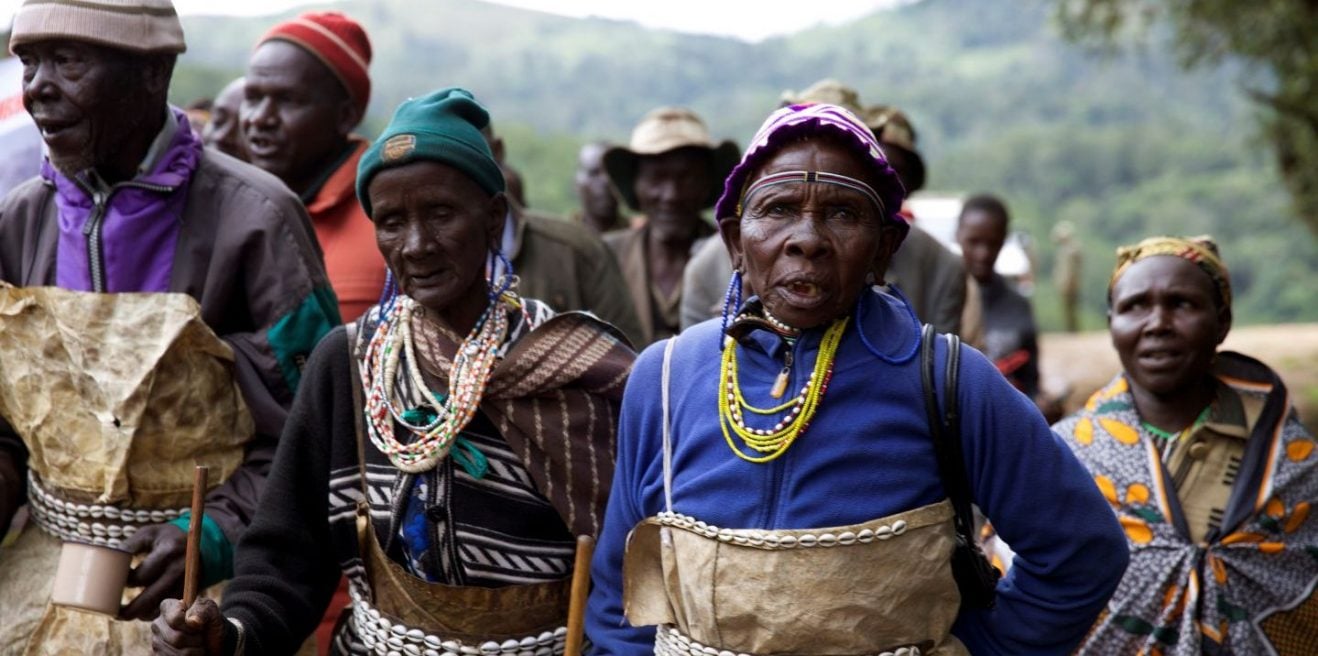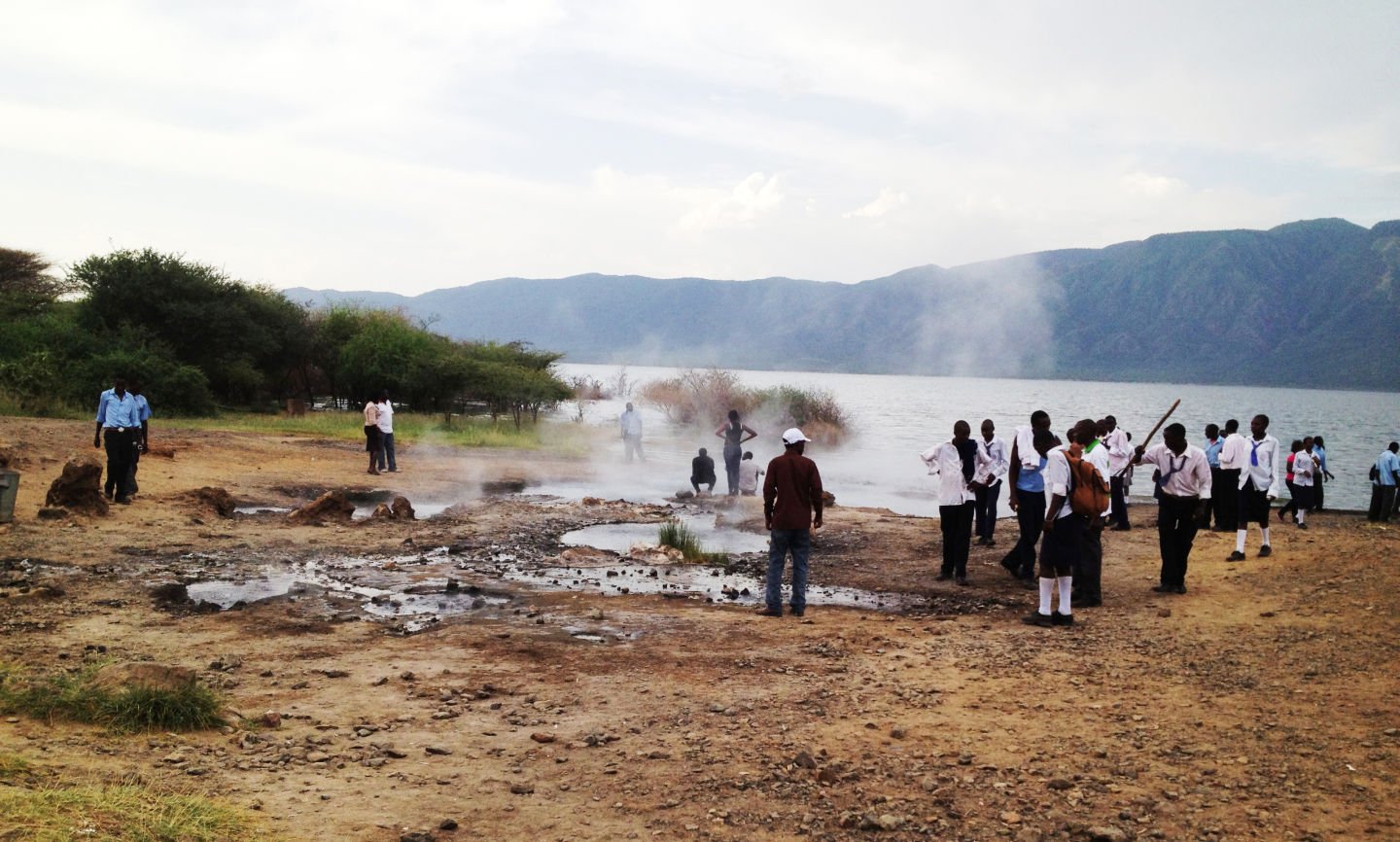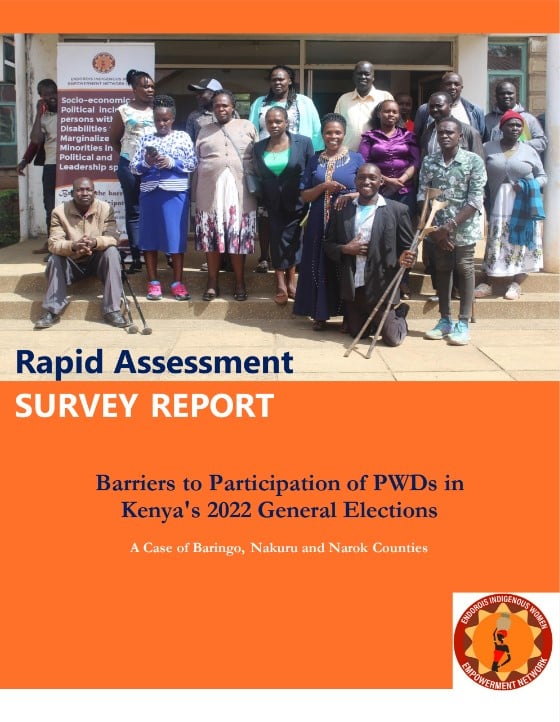
Rapid Assessment Survey Report: Barriers to Participation of PWDs in Kenya’s 2022 General Elections
This resource was produced by MRG’s partner(s) with MRG. It remains the property of the organization(s) in question and does not necessarily reflect the views of MRG.
Persons with Disabilities (PwDs) comprise about 2 per cent of Kenya’s population per the 2019 Kenya Population and Housing Census. Over and above their ever-increasing numbers, PWDs have unique needs and unique reasons for improving public services, especially in social sectors. As such, their representation is not just a matter of law but also a necessity for inclusive and sustainable development. Informed by global human rights instruments, the Constitution of Kenya and subsequent legislations provide an elaborate framework for the inclusion and participation of PWDs in the electoral process.
With a view of promoting this cause, Endorois Indigenous Women Network (EIWEN) in partnership with Minority Rights Group International (MRG) is implementing a project titled, ‘Monitoring the extent of inclusion of PWDs from marginalized ethnic minorities into Kenya’s leadership and political Space’. EIWEN commissioned a rapid assessment of the progress achieved towards including Persons with Disabilities from Marginalized & Indigenous Ethnic Minorities in Baringo, Narok and Nakuru Counties as part of project implementation. The assessment found that participation of PWDs in the electoral process remains low. Across the target counties, no PWD was elected to office for any of the five positions contested at ward, constituency and county levels.
Only 6 PWDs were registered as candidates in the general election in 2022, as most PWDs who aspired for elective positions were eliminated at the level of party nominations. Pertaining to voter registration, only 0.65 per cent of registered voters in the 2022 general election were persons with disabilities. Low access to information among PWDs, weak internal democracy in political parties, non-consideration of the uniqueness of PWDs by IEBC, financing challenges, stigmatization, propaganda and violence are among the key barriers to participation of PWDs in the 2022 elections.
Even with the aforementioned challenges, there are emerging opportunities to bolster the participation of PWD in the electoral processes. These include open election processes, progressiveness in political parties, opportunity to vie on independent tickets and advocacy for PWD inclusion by CSOs.This report thus recommends sustained civic and political education targeting PWDs and the general public. IEBC should create mechanisms to facilitate PWDs in critical electoral processes such as voter registration and elections. It should also make voter registration centers and polling stations PWD-friendly and progressively consider having sign language interpreters, ballot papers printed in braille among other unique needs for PWDs.On the other hand, political parties should adhere to the principle of inclusivity and adopt progressive policies and practices that promote the participation of PWDs. On their part, PWDs should participate actively in constituting and managing the affairs of the political parties with a view to influencing internal policies, regulations and practices in their favour. Based on the lessons learned so far, Parliament should review existing electoral laws to promote the further representation of PWDs in the elective bodies.
